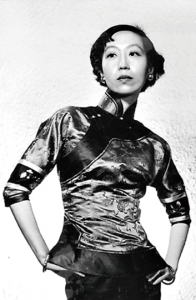This website uses cookies so that we can provide you with the best user experience possible. Cookie information is stored in your browser and performs functions such as recognising you when you return to our website and helping our team to understand which sections of the website you find most interesting and useful.
Privacy Overview







 on the writer. The insights gained from this study have also enriched her teaching. ‘Creative Writing and Film Arts students don't just study the craft of writing,’ she notes. ‘They have to grasp the related theoretical frameworks such as literary criticism, cultural studies and sociology as well.’
on the writer. The insights gained from this study have also enriched her teaching. ‘Creative Writing and Film Arts students don't just study the craft of writing,’ she notes. ‘They have to grasp the related theoretical frameworks such as literary criticism, cultural studies and sociology as well.’







